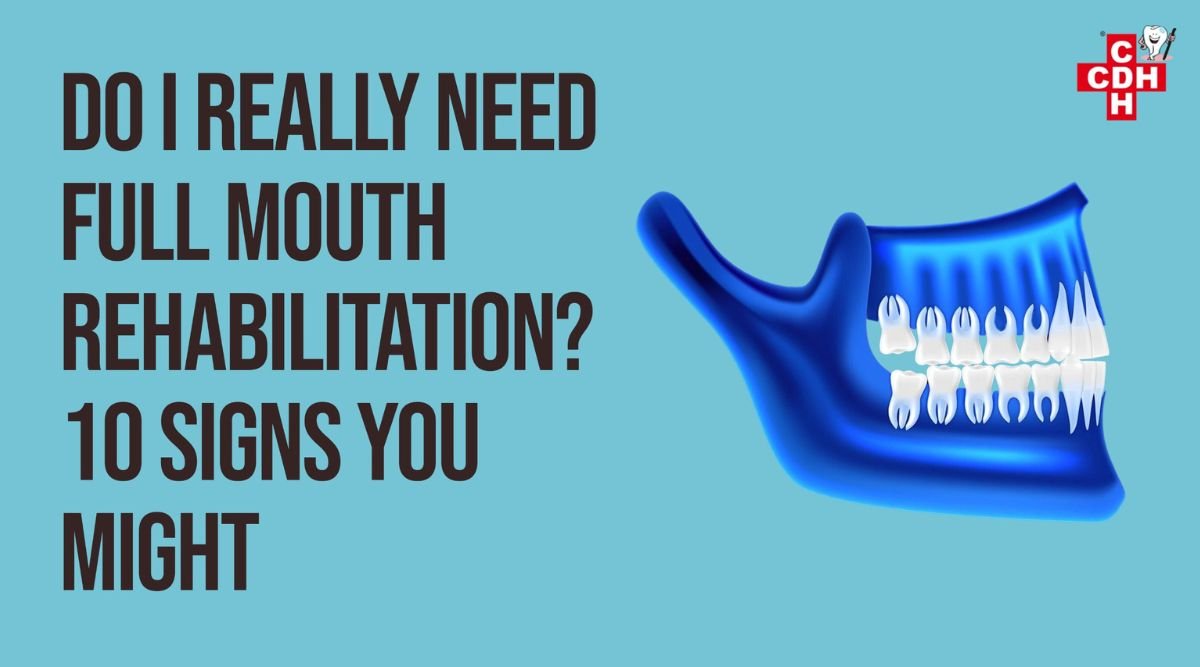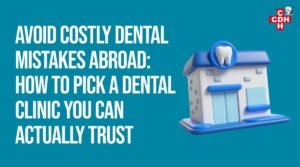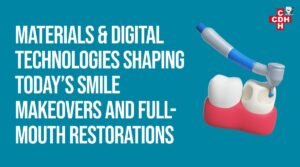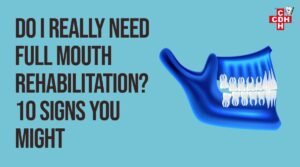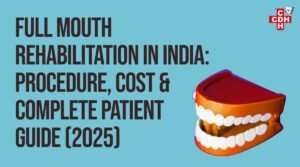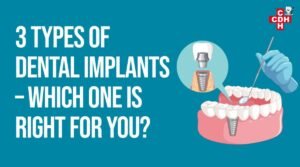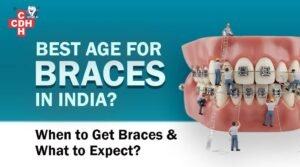Introduction
If you’ve been dealing with worn, missing, or damaged teeth, frequent jaw pain, or difficulty chewing and speaking, you might be wondering — “Do I really need full mouth rehabilitation?”
Before jumping to conclusions, it’s important to understand what this treatment actually means and how it can transform your smile not just cosmetically, but functionally too.
Definition Preview: Full mouth rehabilitation is a comprehensive dental approach that rebuilds or restores all your teeth to improve your bite, oral health, and overall confidence. (We’ll explore this in detail in the next section.)
For many international patients, full mouth rehabilitation has become one of the most sought-after treatments in dental tourism, offering world-class results at a fraction of the cost. With advanced dental technology, globally trained experts, and personalized care, India has emerged as a trusted global hub for smile restoration.
What Is Full Mouth Rehabilitation?
Full mouth rehabilitation is a comprehensive dental treatment that restores the function, health, and appearance of all your teeth. It combines restorative and cosmetic dentistry to rebuild damaged, worn, or missing teeth, correct bite alignment, and improve overall oral health.
In simple terms, it’s not just about getting a better smile; it’s about rebuilding your entire dental foundation so you can eat comfortably, speak clearly, and smile confidently again.
If you have multiple dental issues, such as cracked or missing teeth, jaw discomfort, or excessive tooth wear, full mouth rehabilitation can help bring back your natural bite, comfort, and oral stability. It’s often recommended for people who have experienced injury, decay, or long-term neglect and now want a healthy, functional smile that lasts.
Why Full Mouth Rehabilitation is More Than Cosmetic
Cosmetic dentistry focuses mainly on appearance, while full mouth rehabilitation treats both function and health. It addresses underlying issues such as worn enamel, tooth loss, gum disease, and jaw misalignment.
| Cosmetic Dentistry | Full Mouth Rehabilitation |
| Focuses on aesthetics | Focuses on health, structure, and function |
| Includes whitening, veneers | Includes crowns, implants, and bite correction |
| Improves smile appearance | Restores chewing, speech, and comfort |
| Short-term enhancement | Long-term oral health restoration |
10 Signs You Might Need Full Mouth Rehabilitation
Many people live with ongoing dental problems without realizing how much they affect their daily life. If you find yourself avoiding certain foods, hiding your smile, or living with discomfort, it may be time to consider a complete dental restoration.
Here are 10 clear signs that you might benefit from full mouth rehabilitation.
1. Multiple Missing Teeth
Missing teeth do more than change your smile — they affect how you chew, speak, and even how your jaw aligns. If you’ve lost several teeth, full mouth rehabilitation can replace them with implants, bridges, or dentures, giving you a natural, balanced bite again.
2. Worn, Cracked, or Broken Teeth
Grinding your teeth, aging, or acid erosion can wear down enamel, leaving your teeth weak and uneven. When multiple teeth are affected, full mouth rehabilitation helps restore strength and appearance using crowns, veneers, or overlays.
3. Difficulty Chewing or Speaking
Struggling to chew comfortably or pronounce words clearly can be frustrating and isolating. Bite correction and tooth restoration can make daily eating and communication feel easy again.
4. Jaw Pain, Stiffness, or Headaches
Chronic jaw tension or clicking sounds often signal bite imbalance or TMJ issues. Correcting alignment through full mouth rehabilitation can relieve this strain and improve comfort over time.
5. Uneven or Collapsed Bite
A collapsed bite makes the lower half of your face appear shorter and can lead to premature wrinkles around the mouth. Restoring proper bite height helps rebuild your facial balance and protect your jaw joints.
6. Tooth Sensitivity or Gum Recession
If hot or cold foods make you wince, you may have enamel wear or gum exposure. These problems often indicate larger structural issues that full mouth rehabilitation can address for lasting comfort.
7. Old or Failing Dental Work
If crowns, bridges, or fillings are breaking or causing discomfort, it may be time for an upgrade. Modern restorations used in full mouth rehabilitation offer better durability, fit, and aesthetics.
8. Gum Disease or Bone Loss
Advanced gum disease can cause bone deterioration and loose teeth. A full rehabilitation plan often includes gum therapy and bone regeneration to rebuild the foundation before restoring your teeth.
9. Aging or Worn Smile
Over the years, teeth shorten and lose brightness. Full mouth rehabilitation can restore tooth height, balance, and color, creating a refreshed, youthful smile that still looks natural.
10. Wanting a Complete Smile Transformation
Sometimes, it’s not just about fixing damage — it’s about starting fresh. If you want your teeth to look and feel their best again, full mouth rehabilitation offers a comprehensive, long-term solution for both function and aesthetics.
Why These Signs Matter
Each of these signs may seem small on its own, but together, they can affect your confidence, nutrition, and overall quality of life.
Full mouth reconstruction doesn’t just repair your teeth; it helps you enjoy life again without discomfort or hesitation.
If you recognize yourself in several of these signs, a dental consultation can help determine whether this treatment is right for you.
Why Dental Tourists Choose India
Full mouth rehabilitation in India offers world-class results at 60–70% lower costs than in countries like the USA or UK. You get the same technology, materials, and expertise — just at more affordable rates.
| Country | Avg. Cost (USD) | Quality | Wait Time |
| USA | $25,000+ | High | Long |
| UK | $20,000+ | High | Moderate |
| India | $5,000–$8,000 | High | Short |
Even after travel and stay, you still save thousands — while completing your treatment faster than at home.
Want a detailed look at pricing, treatment inclusions, and what affects the total cost? Read our full guide on Full Mouth Rehabilitation Cost Breakdown (India 2025)
Frequently Asked Questions (FAQ)
1. What is full mouth rehabilitation?
Full mouth rehabilitation is a customized dental treatment that restores all your teeth to improve your bite, oral health, and smile aesthetics. It combines implants, crowns, and other procedures for complete mouth restoration.
2. Who needs full mouth rehabilitation?
Anyone with multiple damaged, missing, or worn teeth — or ongoing jaw pain and bite issues — may need it. It’s ideal for patients wanting to restore full function and comfort.
3. How long does full mouth rehabilitation take?
Treatment time varies based on your needs but usually takes 4 to 12 weeks. Some cases, such as dental implants, may require a few extra months for complete healing.
4. Is full mouth rehabilitation painful?
No. The procedure is performed under local anesthesia or sedation, ensuring you remain comfortable throughout. Most patients report only mild soreness for a few days.
5. How much does full mouth rehabilitation cost in India?
The average cost ranges from $4,000 to $8,000, depending on the number of implants, materials used, and treatment complexity.
6. How long do the results last?
With proper care and hygiene, your restorations can last 10–20 years or more, making it a long-term investment in your oral health.
7. Is it safe for international patients to get treatment in India?
Yes. Top clinics in India follow international sterilization and hygiene standards. Many, like City Dental Hospital in Rajkot, also provide online consultations and travel assistance for dental tourists.
8. What’s the recovery time after treatment?
Most patients return to normal routines within a few days. Your dentist will provide specific aftercare instructions to ensure smooth healing.
9. Can I see what my smile will look like before treatment?
Yes. Many modern clinics use digital smile design software to show you a visual preview of your results before starting the procedure.
10. How do I start my treatment journey?
Schedule a consultation — in person or online — to discuss your dental history, goals, and treatment options. Your dentist will create a personalized plan based on your needs.


